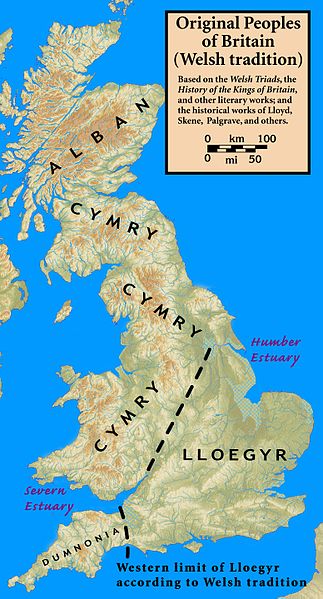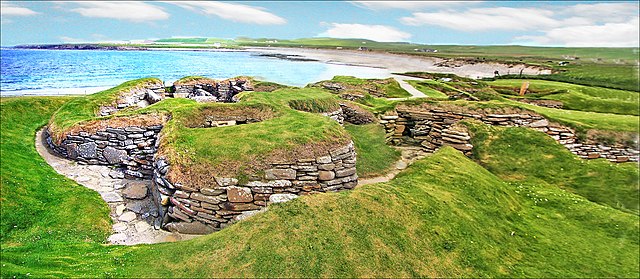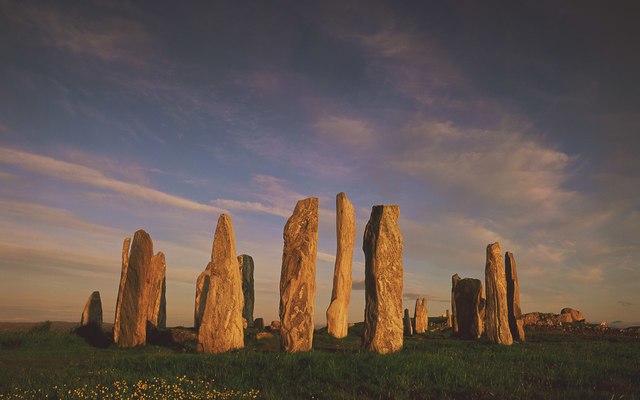Alba is the Scottish Gaelic name for Scotland. It is also, in English-language historiography, used to refer to the polity of Picts and Scots united in the ninth century as the Kingdom of Alba, until it developed into the Kingdom of Scotland of the late Middle Ages following the absorption of Strathclyde and English-speaking Lothian in the 12th century. It is cognate with the Irish term Alba and the Manx term Nalbin, the two other Goidelic Insular Celtic languages, as well as contemporary words used in Cornish and Welsh, both of which are Brythonic Insular Celtic languages. The third surviving Brythonic language, Breton, instead uses Bro-Skos, meaning 'country of the Scots'. In the past, these terms were names for Great Britain as a whole, related to the Brythonic name Albion.

Coronation of King Alexander III on Moot Hill, Scone, on 13 July 1249. He is being greeted by the ollamh rìgh, the royal poet, who is addressing him with the proclamation "Benach De Re Albanne" (= Beannachd do Rìgh Albann, "Blessings to the King of Scotland"); the poet goes on to recite Alexander's genealogy.
The peoples of britain
Scotland welcomes arrivals on the A7: Fàilte gu Alba.
Scotland is a country that is part of the United Kingdom. It contains nearly one-third of the United Kingdom's land area, consisting of the northern part of the island of Great Britain and more than 790 adjacent islands, principally in the archipelagos of the Hebrides and the Northern Isles. To the south-east, Scotland has its only land border, which is 96 miles (154 km) long and shared with England; the country is surrounded by the Atlantic Ocean to the north and west, the North Sea to the north-east and east, and the Irish Sea to the south. The population in 2022 was 5,436,600 and accounts for 8% of the population of the UK. Edinburgh is the capital and Glasgow is the largest of the cities of Scotland.
Skara Brae, Europe's most complete Neolithic village, occupied from roughly 3180 BC – 2500 BC
Callanish Stones, erected in the late Neolithic era
King of Scots Robert I addresses his troops before the Battle of Bannockburn. Drawing from c. 1900.
James VI, King of Scotland, succeeded to the English and Irish thrones in 1603.







